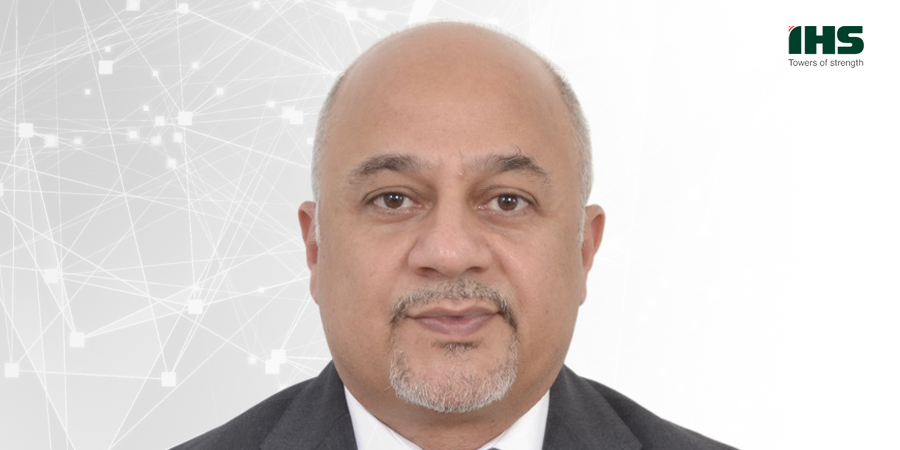Telecom Review interviewed Emad Sukker, VP, Head of MENA Region, IHS Towers, to talk more about the development of the telecommunications sector in Egypt and the region as a whole and the performance of telecom companies amid all the current challenges.
Given your extensive knowledge of commercial and business affairs, what do you think are the positive elements that women add to the field of business? How does this affect the company's performance?
At our company, we recognize the immense value that diversity and inclusion bring. Women contribute unique perspectives, creativity and innovation, enhancing our ability to meet customer needs and serve our communities effectively. We demonstrate our commitment to empowering women through various initiatives, including our global mentoring program, the IHS Women in IHS Network (WIIN) and STEM-based educational programs that support society and nurture future talent. Research shows that teams with a mix of genders excel in problem-solving, leading to improved company performance.
At IHS, we are dedicated to improving gender diversity within our workforce. As of December 2022, women constituted 30% of our Board of Directors and 24% of our total employees, reflecting our ongoing efforts to foster a more inclusive and balanced workplace, compared to 23% in the same period of 2021.
How has the role of women evolved in the field of telecommunications and technology services in recent years?
There has been an increase in the representation of women in leadership positions and technical tasks, as many women tend to occupy jobs in the fields of science, technology, engineering and mathematics (STEM), which in turn contributes to the diversity of skills and experiences among women. According to UNESCO, 57% of STEM graduates in the Middle East are women, and in the United Arab Emirates, their percentage rises to 61%.
Initiatives that promote and empower the role of women in the workplace, mentoring programs and awareness campaigns help address the gender imbalance in representation.
While the requirements and needs of the consumer for services or goods must be taken into account, in parallel with the increase in the number of women in various business sectors, this also helped to reduce the gap between the two sexes using mobile Internet services.
According to the International GSM Association (GSMA), telephone and internet/mobile phone services are more accessible to women than ever before. In 2017, female use of broadband services was estimated to be 25% less than male use, but by 2020, this percentage had decreased to 15%. Although the COVID-19 crisis temporarily slowed down this progress, the increase in the number of women working in the telecommunications sector has contributed to accelerating the pace of reducing the gender gap.
In light of the region's openness, have telecom companies been able to keep up with this development? And where do Egypt and the African region stand in terms of digital transformation?
Telecom companies are actively investing in expanding their network infrastructure and adopting cutting-edge technologies. According to GSMA, the Middle East and North Africa region is estimated to have around 116 million 5G subscribers (17% of total subscribers) by 2025, with the GCC countries expected to reach 41 million 5G subscribers (49% of total subscribers).
Egypt is making significant strides in digital transformation, with improvements in mobile communication networks, services and a growing emphasis on e-commerce. GSMA estimates that Egypt will be the second-largest smartphone market in the Middle East and North Africa region by 2025, with a projected total of 91 million smartphones.
IHS is actively seeking to contribute to this anticipated development. In October 2021, IHS Group signed a partnership contract with Egypt Digital Company for Investment S.A.E., affiliated with the Ministry of Communications and Information Technology in Egypt. Through this partnership, IHS obtained a license from the National Telecommunications Regulatory Authority (NTRA) to build, operate and lease mobile telecom towers in Egypt. Across the African continent, telecommunications play a vital role in driving economic growth, improving access to information and bridging the digital divide. Sub-Saharan Africa is projected to have 613 million mobile service users by 2025, covering approximately 50% of the total population.
To what extent do telecom regulators play their role, and what is its importance?
Regulators seek to ensure fair competition and consumer protection and help develop strong communications infrastructure to keep pace with national requirements. They also set regulations and ensure their implementation, assign frequencies and monitor compliance with international standards in force in the telecommunications sector.
It also seeks to support equal distribution of opportunities, encourage investment and promote innovation in the sector through collaboration and sharing of information and knowledge.
Digital growth requires a lot of effort. What challenges did you face in this field?
Keeping pace with the acceleration of both technological developments and customers' aspirations has been a significant challenge. Since the establishment of IHS in Nigeria 22 years ago, specifically in 2001, the company has maintained the provision of the best operational services in terms of providing electric power, despite operating in markets that are full of operational challenges.
IHS has contributed to ensuring reliable, high-speed communication services across wide geographic areas, including remote areas that lack widespread communication services.
By the end of December 2022, the company had completed the construction and operation of 485 telecom towers, all powered by solar energy, in several remote areas in both Cameroon and Nigeria. IHS contributes to bridging the digital divide and bringing digital services to disadvantaged areas. Our goal is to help create an increasingly connected world where communications promote sustained economic growth and sustainable social development.
We achieve this by providing infrastructure that enables mobile connectivity and through the four pillars of our sustainability strategy, which seek to create a positive impact on the communities in which we operate.
How have telecommunications companies been able to strengthen their cooperation to consolidate their position in the next stage?
Companies cooperate by sharing and benefiting from comprehensive expertise, pooling resources and addressing the challenges faced by the telecommunications sector. They develop innovative solutions and expand service offerings to meet the accelerated aspirations of consumers. Building alliances with technology companies and other related sectors helps create an integrated work environment.







